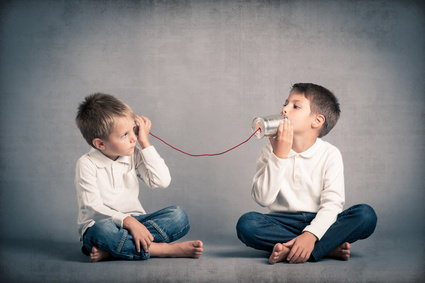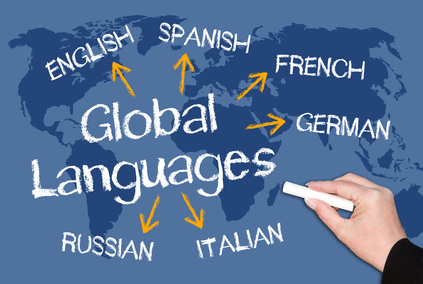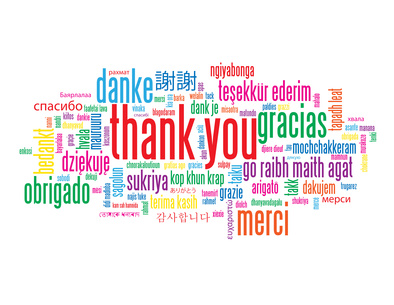- "Why Thinking is Important, Logic" Otani Satoshi (March 4, 2013)
- "Social Media" Otani Satoshi (October 7, 2013)
- "Objective coverage of media and facts" Satoshi Otani (November 5, 2013)
- "Transmission and cognition of information" Satoshi Otani (December 2, 2013)
- "Objective (formal) and Subjective (real)" Satoshi Otani (January 13, 2014)
- "Language Expressiveness, Customs and Culture" Satoshi Otani (February 3, 2014)
- "Diversity and Measure" Satoshi Otani (March 03, 2014)
- "Lingual Expression and Writing Skill" Satoshi Otani (April 12, 2014)
"Why Thinking is Important, Logic" Otani Satoshi (March 4, 2013)

Don't kill people. There are few people who do not know or understand this. Then, how many people remember what kind of criminal law stipulates the crime of murder and correctly understand what kind of penalties they have set?
(Crime of Crime) Penalty Act Article 199 A person who has killed a person is subjected to death penalty or imprisonment for no more than five years
This penalty itself is information and knowledge. It is because the restraint to this action has a certain control according to the result of thinking by human reason. Even because you are bound by rules such as laws and rules, it is not because it is information and behavior is controlled by knowledge.
People think that they are thinking in their work and life. Even though information is collected, analyzed and processed (even in knowledge), few people think with their own heads. The past customs, values and best practices are copied as they are without defining the criteria and assumptions about what should be prioritized for what. In fact, many people control their actions through knowledge, with most of the work and life becoming opaque at the boundaries between knowledge and thought.
"Sorting a person (or scorning) can make a family or friend sorrow. It can even be a marginal punishment if it is judged that there is no room for apology." This is simply an array of knowledge that is an objective fact. So you can see that there is no one's own thoughts or opinions. "I'm sorry, but I'm sorry if I want to do it even if I'm prepared for the capital punishment." It's easy, but it's an opinion created by one's own thinking. By combining the feelings and knowledge of the beloved daughter's lost parents, such simple opinions can be generated from thinking.
Thought is not to arrange knowledge but to draw an opinion or conclusion based on certain facts or knowledge, and to think. To that end, I ask the knowledge "Why, why?" And ask myself repeatedly. And, "for why," and, as the reason to express the opinion that he thought. It is important to acquire such a thinking bond and to continue.
If you collect information into a database, it will be a very convenient knowledge database. However, in an Internet society where information can be obtained relatively easily (a broad information network society including human connections), the value of information or knowledge itself is lowered even if it is a source of information that generates value. think.
Japanese students who are all Japanese and whose interests and interests are in the same direction, and can only build a homogeneous connection from locals and parents. Overseas students who can gather diverse people of nationality, interests and interests and build diverse networks through dormitory life and homestay. It is good for everyone to aim in the same direction. We are asked to be complimented, recognized and correct, and we hesitate to insist on fear of failure. The answer is guided by the logic of numbers, and the majority (majority) spreads. Japan has the potential to seek such uniformity and social bias.
I feel that it is good that people's thoughts, opinions and values are respected. A mature and rich organization or society in which such diversity (diversity) is actively respected requires highly autonomous actions based on individual opinions and thoughts. From the era of uniform and mass production, it will be a time when products with diversified individuality can be accepted, and the ability to think will become a society that will create future value and added value.
The person's value is not the number of years of experience or experience in life, the amount of information or knowledge, but the way of thinking or philosophy of the person, and the attractiveness of the person creates the person's own value. Just being smart isn't respected, it adds value to the area of sensitivity, and enhancing sense (sense) avoids generalization (commoditization). Innovation (innovation) is created by the thinking of minorities (uncertainty).(March 4, 2013)
"Social Media" Otani Satoshi (October 7, 2013)

Mass media (newspapers, television, radio, etc.) is a means of information transmission from a specific small number of callers to one-sided and unspecified large numbers. Information content is disseminated through the Code of Ethics based on each media's business ethics and the Code of Ethics by third parties, etc., so as not to result in biased coverage or factual misconceptions due to one-sided interpretation.
Social media is a means of information transmission from "a large number of individual callers to two-way and unspecified number". Unlike traditional mass media, I think that it is a manifestation of the desire that oneself wants to judge by listening to raw voices that are transmitted more by individuals, rather than to hate (general only) the general intent.
Such a community itself is naturally generated and formed in various forms, and I think "Gathering of friends in the neighborhood", "Girls gathering", "Gathering of mother's friends" etc. are good examples. I think that it is a service that can be seen in SNS that provides a broad "square" for realizing such purpose, wanting to share the same emotions such as complaints and troubles through interests and concerns.
The point that is always discussed as a danger of social media is the credibility of the information, and everyone says that judgment is important. Is it right. I felt somewhat uncomfortable, and I considered it myself.
First of all, it is nonsense in itself to believe that reliable information will be provided reliably, as it is an intermediary that enhances the ease and realism of information transmission, and it is necessary to recognize and understand such information.
Here, when the friends played a message game with a few people, there is a laughing story in which the "Elephant" we wanted to tell the last friend was transmitted as "Giraffe". My friend who played the game told me "Animal and Big and Long". The friend who heard it thought that it was a giraffe because I thought that it was a long animal and not a nose but a neck.
The point to be focused on is the fact that everyone is credible and was seriously trying to communicate accurately. You should understand the fact that, even if you don't want to convey false information, you may not be able to get it right against your will.
We believe that such a phenomenon is caused by an individual's "difference" from the subject's focus such as the sender's or receiver's values and interests. It is a foolish question itself to think why you did not add a word "nose". As long as there are such individual differences, it is unavoidable and can not be avoided.
Therefore, rather than the power to judge, the information from them is used on the premise that they are mixed. And I think that it is important to use them and communicate properly.
In the first place, you do not think to judge based on the information, but it is always to judge yourself, and to consider the information as mere material. It does not matter if the information source is mass media or social media.
By the way, suppose that a supervisor who trusts you is instructed to "extract work items and tasks first". And, it is said that "It is good to use this format (template) at the time of extraction". We think that the way to use this useful information form (template) is social media in a broad sense, but what do you think?
Is it reliable because it is information from a trusted boss? I think that the way you are dealing with your own attitudes and materials for problems and events is questioned rather than your own judgment.(October 7, 2013)
§This time, I considered how to deal with information such as media. Next time, I would like to think about the quality of information, such as media, on the theme of "media objective coverage and facts".(The next one will be published on November 5, 2013)
"Objective coverage of media and facts" Satoshi Otani (November 5, 2013)

This time focusing on the quality of information,
・Extraction of objective information (material)
・ I would like to think about the range where events and facts can be expressed.
Think about things like.
In the first place, you do not think to judge based on the information, it is always yourselves to judge to the last, information is just material. When thinking in this way, I believe that what is important is the factual knowledge of the information. The foundation of thinking logic is accuracy, which requires linguistic expression based on the three processes of recording and describing facts, and conveying them.
So what is the point that should be kept in mind in order to correctly extract the results (events) from the information that is the material about objective facts about the events that occurred? And what do events and facts indicate?
In the event of an accident or disaster outside Japan, the media may report that, according to the Japanese embassy, the rescued or dead people do not include Japanese. When I was in elementary school, I was concerned about the content of this report and had asked my mother a question.
Me:Why say "Japanese people are ...", Do you treat only Japanese as special?
Mother:Because we are reporting to Japanese people, they give priority to me.
Me:Life is equal, but treating Japanese survival as a priority is wrong.
Mother:Yes, it may be.
such media coverage is a term often heard, and there is no particular problem. You can also feel it. However, I also remember that the reason that emphasizes "Japanese" also in the child's mind felt very unclear.
Because it is reported in Japan, it may be reported in this way, considering that Japanese people are interested and should be prioritized. However, do not you think that there are people in Japan who are not living in Japan and are concerned about safety? If it is not possible to capture everyone's thoughts and feelings, it may be considered as a better choice to define as such because of priority and number logic.
What does the other party want to know and what kind of things do you care about? As such, the definition of objective coverage becomes very vague.
Depending on which scene material is extracted and transmitted from the facts, the weights and causes for the facts may be curved. The priority of the media as a media coverage is that it is a fact or interest of the general public along a specific view or viewpoint, and it is also considered as a lack of public equity.
The facts derived from missing information, facts extracted from certain parts or interests or superficial events are not a necessary condition, even under sufficient conditions. If you pursue the objectivity of the media, shouldn't you think about transmitting the maximum facts or events purely, not what the other party is seeking? In order to draw the correct conclusion, it is necessary to collect the maximum of correct facts.
Then, is to collect the maximum facts to guarantee the maximum reliability? It should be kept in mind that objective facts are always local and superficial events, and credibility is what guarantees the scope of the information.
Therefore, even if the facts can be extracted as much as possible, the facts of the underlying truth and problem are not interpreted, but it is only the result and the basis of the judgment when thinking from there. I think that you should always be conscious.
Based on those facts or events, we will be able to think of an appropriate hypothesis for solving the essence of the problem, and extract and demonstrate facts and events for that hypothesis. I think this kind of ability is being asked.(November 5, 2013)
§This time, I focused on the quality of information, and tried to think about objective fact extraction and fact expression range. Next time, I would like to think about people's cognition and work on information under the theme of "transmission and cognition of information"(The next one will be published on December 2, 2013)
"Transmission and cognition of information" Satoshi Otani (December 2, 2013)

This time, I would like to think about the person's cognition and work for information under the theme of "transmission and cognition of information".
How is information transmitted and recognized to people? If you want to think about it, you first need to think in a philosophical approach to the question "why words come through".
If you are trying to find out the relationship between human cognitive tendency and words, it will be interesting to learn relevance theory, which is one of cognitive pragmatics. In addition, you can understand the limitations of the language symbol (means) and how important the relationship between the speaker and the listener is.
By having symbols of language (means), we may use a method that is sometimes difficult to convey and select a means of transmitting more complicated meanings.
In the field of linguistics research, there are two semantics, the semantics of which cover the surface (in language) meaning of words, and the pragmatics that study the back (outside) meaning of words. You.
Relevance theory represents the tendency of human cognition based on the principle of pragmatic relationship, which is the study to study the conjecture of conversation (backside meaning).
The phenomenon that words are communicated is not only because each other uses the same language symbol (means), but also because the speaker guarantees the relevance (related content related to the listener), the listener interprets it try to. The human cognitive function has a cognitive effect, so we try to recognize it using effort, and the transmitted information is guaranteed because the cognitive effect corresponding to the effort is guaranteed. The idea of this relativity is that we are trying to receive, so "through".
Cognitive effects become stronger when the audience is secured with the most relevant and interesting information. The more effort it takes to interpret, the better it is that you will not get the best cognitive benefits if you can not think of something more appropriate.
To the last, interpretation of words depends on the inference ability of the listener, and it means that human communication is established by deciphering the symbol (means) of the language and deducing the intention of the speaker.
The words are back-to-back, and they have a mixture of speaker's ideology (meaning of sentences) and conjecture (meaning of speaker).
The phrase is a little old, but "I hate hate hate" is a representative of it, and I hate it and deny it in ideology, I will try to convey the opposite thing in favor. Based on relevance theory, in this case, it takes much effort to interpret, it is recognized only by the person with a specific relationship (listener), and the cognitive effect is considered to be weak.
Therefore, in order to interpret ideology and its inferences in a conversational environment, I believe that it is very important that each other's positions and roles, such as speakers and listeners, be clearly recognized. If the intention of how certain information is communicated and used is clear to each other, it may not be possible to properly utilize or interpret that information.
Furthermore, using language symbols (means) can sometimes confuse you with the nuances that are not transmitted or what you should say.
The hieroglyphs (hieroglyphs) of ancient Egypt are considered to be the origin of pictograms. I feel that the stamps found in social media etc. are a very appropriate means of communication that combines ideology and intimacy. By simplifying and scraping the information to be transmitted, the effort of interpretation will be less. If the relationship between them is clear, it may not mean that you can get the best cognitive effect by using symbols such as hieroglyphs instead of language.
I think it is important not to know what kind of means it is, but to know or try to know.(2013 December 2)
§This time, I focused on the transmission of information and cognitive effects, and thought about the person's cognition and work for information. Next time, on the subject of "objective (formal) and subjective (substantial)", I would like to think about the importance of people's thoughts about the act of knowing.(The next one will be published on January 13, 2014)
"Objective (formal) and Subjective (real)" Satoshi Otani (January 13, 2014)

In the previous articles,
・Information reliability(how to face information and attitude)
・Objectivity of information(extraction of objective facts and scope of expression)
・Transmission and cognition of information(meaning and transmission means included in information)
Under the theme of the dangers of handling information, ensuring the accuracy of information and the difficulty of collateral.
And there are two meanings, meaning and intimacy, included in words (information), and there are things that can be expressed as words and things that can not be expressed. The information transmission tries to interpret with effort because the relation with the information to the other party is guaranteed, and since communication is established by the reasoning ability of the interpreting side, the relation with the other party is clarified. It is important. I have been thinking about this.
This time, I would like to think about how important and interesting things are the thinking circuit that is conscious of the difference between "objective (formal) and subjective (real)" and "thing (purpose)" and "thing (means)" think.
I understood somehow or understood sensibly. What I understood in the subjectivity and feelings of such people tends to be classified as vague, less accurate, and in some sense not correct. Implicit knowledge that is subjective and can not be verbalized, or can not be explained even if verbalized (subjective) is a sensation that a particular person has a unique understanding, and it is difficult to verbalize or embody Because, it is defined that no one can understand.
However, if formal knowledge, which is objective scientific knowledge (objective) that everyone can understand in the same way and can explain even if verbalized, is the prejudice or bias of correct information too strong, Imagine that formalized and digitized information is more accurate and effective, digitize analog ones, and seek more objective and logical logic and formal knowledge to get the right information and answers. It is easy to think that it is a leading attack.
In the previous article, I will try to convey the opposite of love and remorse while ignoring and denying the information of "Don't dislike". He stated that it was an example of trying to convey the subjectivity of love while expressing intention to dislike it as objective.
The degree to which you feel that you are a subject, like a subject, is a way to convey that feeling, and the feeling that you have indicated that you hate the means of expressing it is not something that everyone can understand in the same way. However, if the relationship with the other party is established and the relationship is secured by the information or other information, the cognitive effect will be strong, and the information will be properly transmitted by the senses and vague emotions. is.
It is not important whether the objective (formal) or the subjective (real) is correct, that is, information that is mutually balanced by mutual complementation.
In this case, we use the language symbol (means) to select the dislike words and expressions (means) to convey the feeling (purpose) of love. The expression of the word or hate that is the objection of the objective is the "thing (means)", and it is the means only for the "thing (purpose)" to convey the feeling that it is subjective and likes like. It is possible to select another wording or expression (means), or convey the feeling (purpose) of love with completely different means, but it is to be understood that you have chosen a means not to convey the subjectivity directly is.
Here we assume that you have asked a couple of people what food is like to you.
One person answered, "To live and to survive" and the other answered, "To feel living happiness and joy" If it is considered that the diet is for survival, the balance of food intake and nutrients such as calories becomes important, and if it is for living happiness and joy, not only the food intake but also the quality of deliciousness and who It may be important whether you spend the time, etc. It may be considered that the method is not necessarily limited to eating.
For what kind of things (purposes), do you choose the act of eating as a thing (means)? The answer differs depending on the difference in the person's way of thinking or definition of how you define "to (purpose)". Therefore, it is important to understand the "object (object)" inherent in the information, and if the "object (means)" is mistakenly extracted as the object, the correct information or answer should be derived. Is difficult.
In any case, it is very important to think that there is human subjectivity, thoughts and feelings behind it. I think that the subjectivity and feelings of people are born first, and for that purpose the "knowledge" of how to do it starts.
To gather information that is the material to know it, through the process of converting human mind (tacit knowledge) and objective (formal knowledge) into a spiral, to classify and organize information, and to understand the purpose and concrete means Information (knowledge) is generated in the process of I think that it is the mutual complement of tacit knowledge (subjective) and formal knowledge (objective) such as subjectivity and objective, conviction and reason, art and technology, and their balance is important.(January 13, 2014)
§This time, on the subject of objective (formal) and subjectivity (real), I considered the importance of the thought circuit to be aware of the mutual relationship between the two and "thing (purpose)" and "thing (meaning)".(The next one will be published on February 3, 2014)
"Language Expressiveness, Customs and Culture" Satoshi Otani (February 3, 2014)

The Japanese language has several words that are difficult or impossible to express. There are also expressions and words that are transmitted throughout the country, such as standard words and local dialects.
There are many people who think of "omotenashi" from the expressions that are now prevalent, but the expressions that Japanese people love and the most common and representative words are "yoroshiku-onegaishimasu".
By expressing "yoroshiku (=regards)" abstractly, I think that it is a very convenient yet polite expression that can be used under any circumstances, without bothering the requester and the requester.
However, it is said that such Japanese feelings and expressions are difficult to translate into other languages such as English. What kind of thing is hidden and what kind of thing can be considered?
Languages that use Latin characters (Roman characters) are generally less information per character, and it is known that the amount of information per character in Japanese is the second largest language after Chinese . A researcher said that translating Japanese text of 140 characters into English resulted in an average of 260 characters, nearly twice as much. In other words, the ability to express 140 English characters is only about 75 Japanese characters.
A variety of expressions are hidden in the words "yoroshiku (=regards)", and I think that the amount of information to be transmitted may be large. In addition to communicating your emotions and feelings, we try to simultaneously convey the other person's concerns and concerns.
If it compares with English which becomes a foreign language, it will be "Nice to meet you" In the first greetings with the person who met for the first time, and it will be good in "Thank you" I think so. Also, I think that "I am waiting for good news" May not be an appropriate expression if the matter is a job request for a business partner.
If you dare to translate "yoroshiku-onegaishimasu" into English, I think that "I beg your kindness" is the closest expression. However, because it is a polite and overly simplistic expression, it seems to be less used in native English-speaking countries..
For the English-speaking people, "I hope for your kindness with something from now on," even though there is no relationship to establish a specific relationship, or to ask for something specifically It will be transmitted. And by leaving the decision to "yoroshiku (=regards)" and the other party, it becomes an expression asking you to dare understand that the result may not meet the intention of the person, and it is interpreted as a very bold request.
Even if it is a common and everyday scene in Japan that new employees say "yoroshiku-onegaishimasu", a culture that conveys that way in situations that are not specific requests exists in the English-speaking world I do not think that.
In Japan, there is a culture that beautifies to convey and express while expressing emotions deeply and deeply, rather than conveying feelings and emotions directly. In order to convey feelings and feelings, I think that I often use different wordings and words for the other person, and change nuances and tones. However, while paying attention to such points, I feel that few people care about what they want the other party to do specifically.
If you want to evaluate the job you have specifically requested or express your gratitude, I think that should be said. If it is expressed in English, it expresses concretely what it is to communicate such as "thank you", "good job", "be careful". There is no culture that expresses "otsukare-sama" to change the atmosphere or to avoid being considered uninvited.
When you go home from work first, you may feel resistance to talking and speaking to people who are working hard and silently. I consider it to be a consideration for labor, etc., but for those who are concentrating on work, I think that "osakini-shitsurei-shimasu" and "otsukare-sama" may sometimes get in the way or feel noise.
These ideas depend on the nurtured environment, customs or culture. I think it is very important to know your customs, culture or character.
By knowing the culture of people in each country, you can understand why you think that way or you came to that idea. If you don't know them, when you try to change the language or change the language and means itself, you may not be able to get it as you think.(February 3, 2014)
§This time, with the theme of expressive power of language and customs and culture, I considered the importance of knowing the fostered environment, customs and culture in dealing with language.(The next one will be published on March 3, 2014)
"Diversity and Measure" Satoshi Otani (March 03, 2014)

In order to understand oneself and the other, I think it is important to know the nurtured environment, customs, culture and character.
By knowing the customs and cultures that exist inside, it can be helpful in understanding how to get to such ideas.
What kind of time do you try to think? Why do you think so and think like that? I think it is not important to create an attitude that tries to consider why it seems like that, not from your own direction but from the other's direction.
Then, in what attitude should we treat people with different nurtured environments, customs, cultures and characters? What should we keep in mind when cherishing diversity?
This time, I would like to think about the customs and culture mentioned in the previous article from the perspective of diversity.
Japanese are said to be relatively easy to believe. I believe that it is probably due to being a single race who grew up in an island country.
Surely everyone should think and understand the same thing. Because such an idea is at the bottom and I think in the same way as myself, I can not betray or lie. I think that in the process of being born and growing in the same environment and area where seasons and climates are, the feeling of trusting such a partner will naturally be included.
There is a feeling that basically everyone thinks that they should be the same, and I think that trust and belief are supposed to be understood even if you don't speak, and that belief is often the premise of thinking.
Because of this, I will strive to convey the feelings and attitudes of my mind and mind, rather than the specific actions of what I want. As long as it is transmitted, if you are the person who feels the same feeling, what you want to do is the same as yours and you will surely understand.
Therefore, we gather only with friends who share the same ideas and feelings naturally, and seek their own comfortable places. If you have a different opinion or way of thinking, you may stop taking action together without hearing other opinions or claims.
Surely you have different values, if you think so, you will probably not know the other person and it will be difficult to understand. What seems like that is the starting point.
Your idea may be wrong. Thinking so, I will make an effort to actively communicate my thoughts and principles to the other party. If there is a difference, it is important that you need to fill in the groove, and think that you have to discuss it with the other person and get rid of it.
If you convey different opinions or negative thoughts, you may feel that you are misunderstood that you are denied as a person, not a way of thinking. Dissonance is a factor in losing organization and community co-ordination, so we try to eliminate different opinions and ideas as much as possible. Therefore, the idea may be adjusted to be consistent, or the trajectory may be corrected to be in the same direction, leading to an opinion or idea to be synchronized.
There should be a wide variety of ideas, cultures, values and philosophies. It is good for people to live with their ideas and values, and there is no right answer in their way of life. Instead of being conscious of whether it is the same as or different from you, there is such an idea, or it may be such an idea. It must not grow as it should be.
In order to respect diverse opinions and ideas and to cherish diversity, we believe that it is important to unite the recognition of uniform completion criteria such as goals and objectives.
If you think that you are right, act positively at your own discretion without asking for instructions. When such an action is required, it is very important whether the action is based on the purpose being understood or whether the completion criteria are the same. If it is not satisfied or conscious, it is only selfish and selfish behavior that has been thought to be selfish.
In order to do so, check the other party's opinion and idea, and actively communicate and discuss your own idea and opinion. If there is a gap between one's thoughts and awareness, it will be necessary to make up for them. I think that it is important to put "a measure" (purpose and completion criteria) in the place and to judge correctly what is correct and wrong, not the same or different oneself.(March 3, 2014)
§This time, with the theme of customs and culture as a viewpoint of diversity, I considered the importance of the attitude to affirm diversity and the common "standards".(The next one will be published on April 12, 2014)
"Lingual Expression and Writing Skill" Satoshi Otani (April 12, 2014)

If you get used to speaking in Japanese (same language) in a Japanese (same ethnic group), the conversation will be established without providing or sharing special information, or you will not use many specific words However, I feel that there are many opportunities to convey what I want to convey.
However, even if you have a conversation as usual, you may find it difficult to convey what you want to say or feel as soon as the person you are telling changes. You may feel uncomfortable or not even having a conversation.
Even if you are speaking in Japanese (same language), there are times when you don't know what you want to say or what you want to say. You may also feel that conventional values and ways of thinking have changed as a result of changes in the social environment.
This time, I would like to think about the change in language expression (evolution) and the importance of treating the native language correctly.
There are more opportunities to learn and interact with other languages such as English, such as going to foreign language schools and purchasing teaching materials. If I study other languages, I feel that it is important to know the expression methods and habits (thoughts and customs) of people in that country.
In Western conversations, there is a habit of first asking "Yes" or "No" and then explaining why it is. If you compose sentences with Japanese thinking circuits, the foreword will become long and you will not reach the conclusion easily. In particular, people in the United States and Europe can not understand what they want to say in the end, as they begin to think that they convey their conclusions, and they are puzzled while memorizing or rearranging the contents in their minds.
Depending on the person's life style and nurtured environment, the composition of sentences and language expression may differ even if they try to convey the same content.
Regardless of whether you are a native language or a foreign language, words, words or methods of expression reflect (show) the thinking and attitudes of people such as the country or ethnicity. It is a trend and culture that gave rise to hiragana from Japanese kanji, and the gal language that high school girls frequently use is also due to change (evolution) by cultural dispatch.
The environment and culture at that time are greatly related to the change of language. People's emotions and feelings or ideas, such as how they want to convey, change (evolution) words and wordings. Only when such an environment is necessary at that time will a specific linguistic expression be born. And as it continues to be selected, it shifts to the standard.
To the last word is a means to convey feelings and emotions. And Japanese, which is the native language, is also just one means. The change in the environment that forms and composes a person's personality changes the interpretation of the correct (standard) words and verbalization in speech.
Even though the content you want to convey is the same, there are differences in the way each person speaks language. However, if you try to communicate correctly, what you want to convey can not be transmitted unless you have clarified something. If you have been in the same environment for a long time, even the wrong words and words will be transmitted somehow. That way, even if you don't sort out what you want to convey, the conversation is established and you can live.
When thinking about conversation, if you want to learn other languages such as English, I think it is important to be able to handle your native language correctly.
There is no subject in the content of the conversation, only modifiers and no predicates (conclusions). Or just arranging emotions such as feelings and thoughts, but not explaining what you want to do. In the first place, correct understanding and arrangement of what you want to convey is fundamental to conversation and very important.
It is a habit and habit that it is possible to hang down the words that have come to mind as it is, and to speak in a chain of explanations for explanations. This is a point to keep in mind, as it will lead to a long preface and even a loss of the main points.
If you get used to talking with a close friend or a well-known person, you may be able to pass to a certain extent, even if you omit the contents of the message or make a slight mistake. By making such things customary, ideas such as what kind of words (words) can be transmitted if they are assembled can be neglected.
When, where, who, what, how, and why. If you reorganize it with the 5W1H practice, you may be embarrassed as to how poor the content or expression you want to convey. "If you go beyond conclusions" is a matter of logical construction only by changing the order in which you speak.
If you can not logically construct the content you want to convey, such as who you want to convey to whom, it means that you can not correctly handle the "word" itself, regardless of whether it is a native language or a foreign language, Common language translation is difficult.(April 12, 2014)
§This time, the theme of linguistic expression and writing ability, I thought about the importance of treating changes in language expression (evolution) and native language (language) correctly.



 Activities
Activities About us
About us